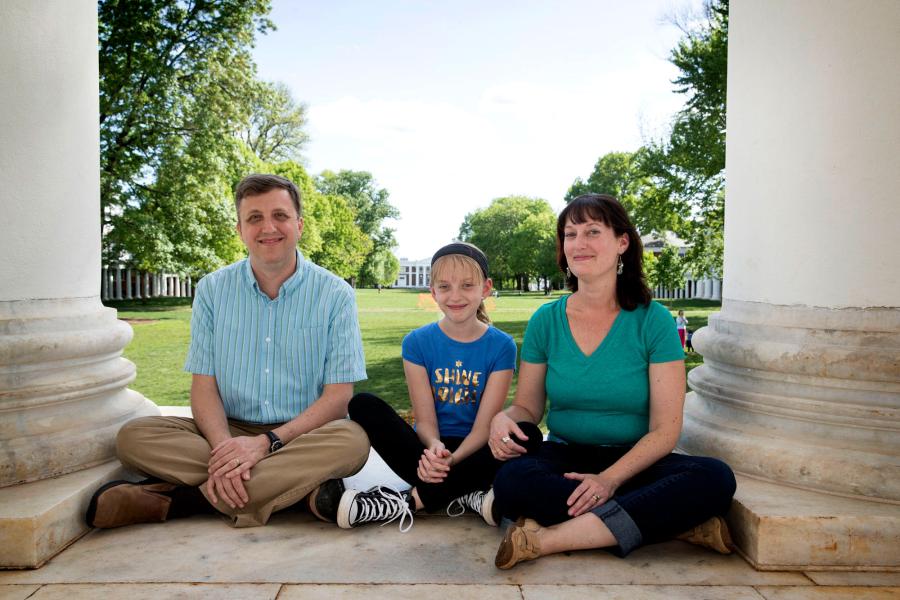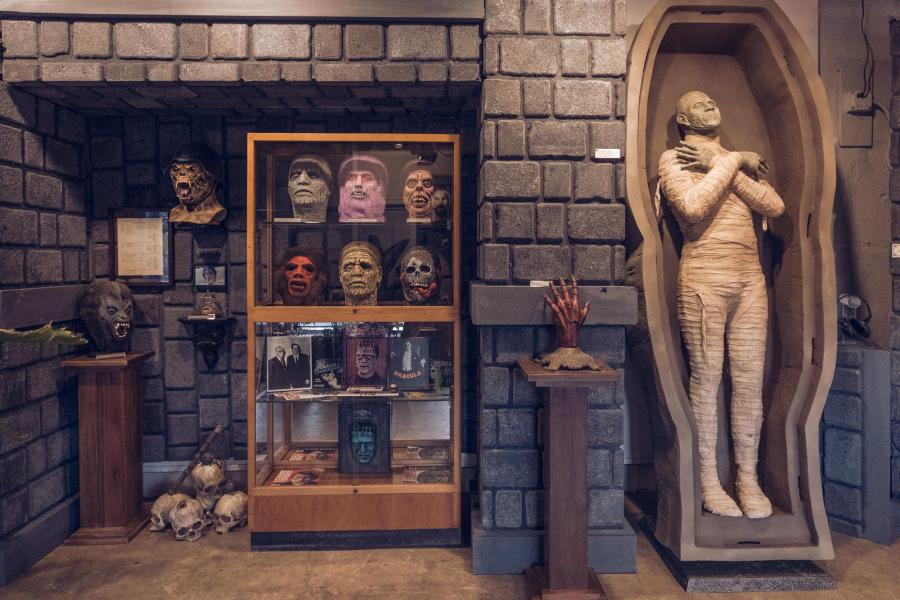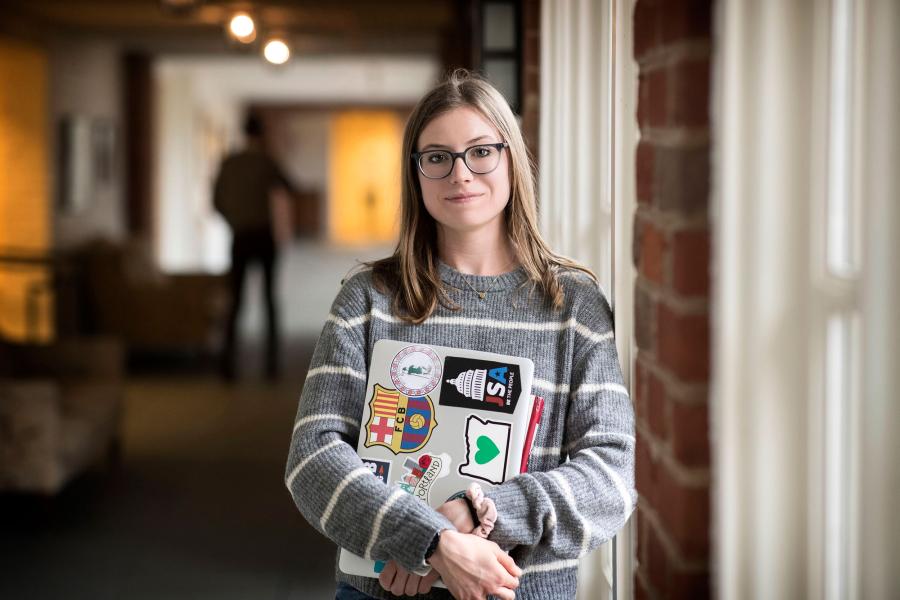The back-end web developer of the University of Virginia’s Miller Center of Public Affairs has a few unexpected tricks up his sleeve. Not only has Miles Efron played the guitar since he was a child in the San Francisco Bay area, he is now known among his friends as the go-to creator of custom electric guitars.
Coding and Music Fit Together in This Web Developer’s Brain
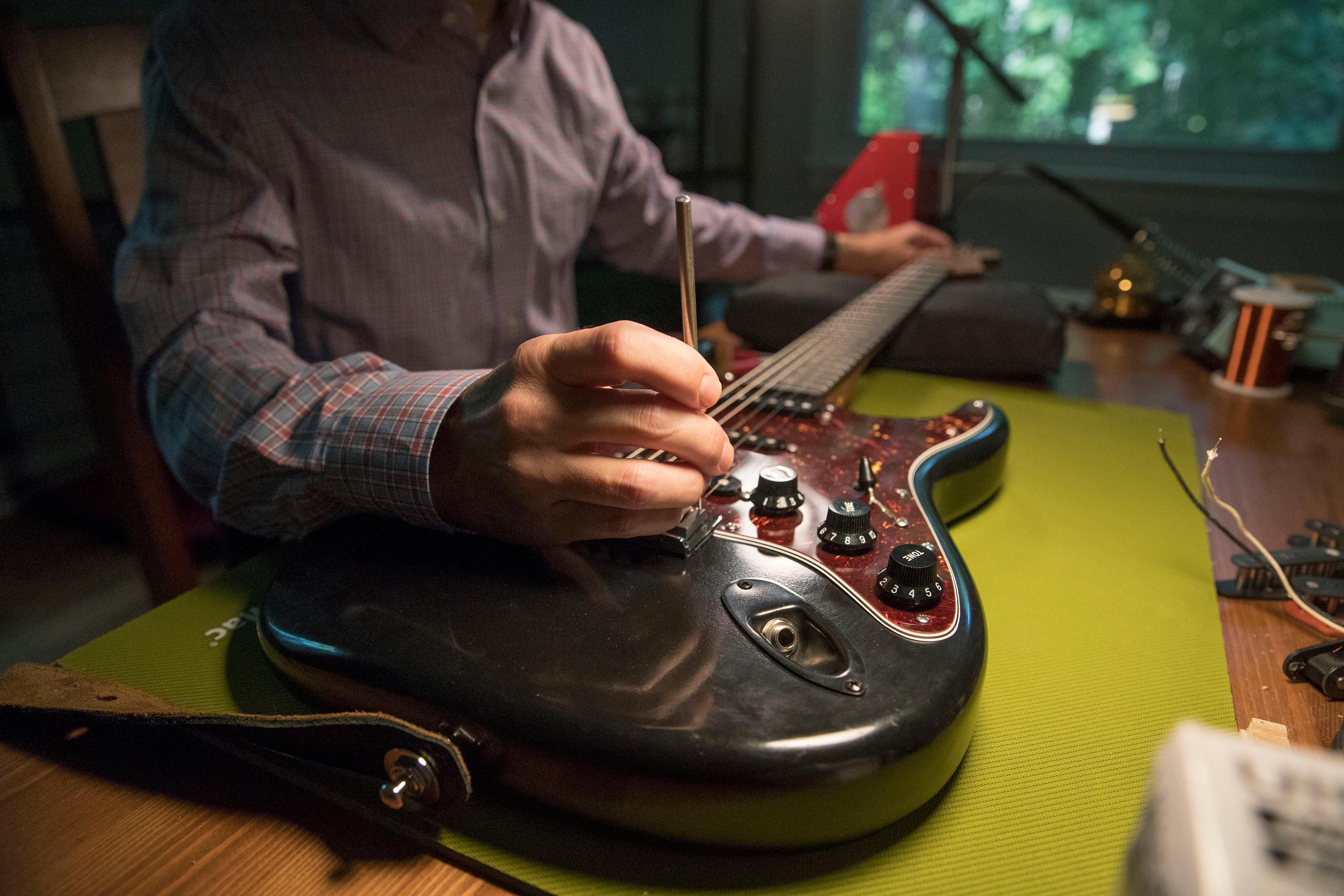
Coding and Music Fit Together in This Web Developer’s Brain
During the day you can find Efron in the Miller Center’s basement, ensuring the database and software for its website is running smoothly. That’s his “bread and butter,” as he calls it. However, that only takes up half of his time on the job. The other half consists of assorted projects, such as backing up hundreds of terabytes of video footage or writing software for the more than 30,000 presidential recordings that are housed on the website.
“I always have my hand in a few things going on simultaneously and sometimes it can even get more exotic,” he said. “[During] the Presidential Ideas Festival, I got to piggyback with some of my colleagues and do camera work.”
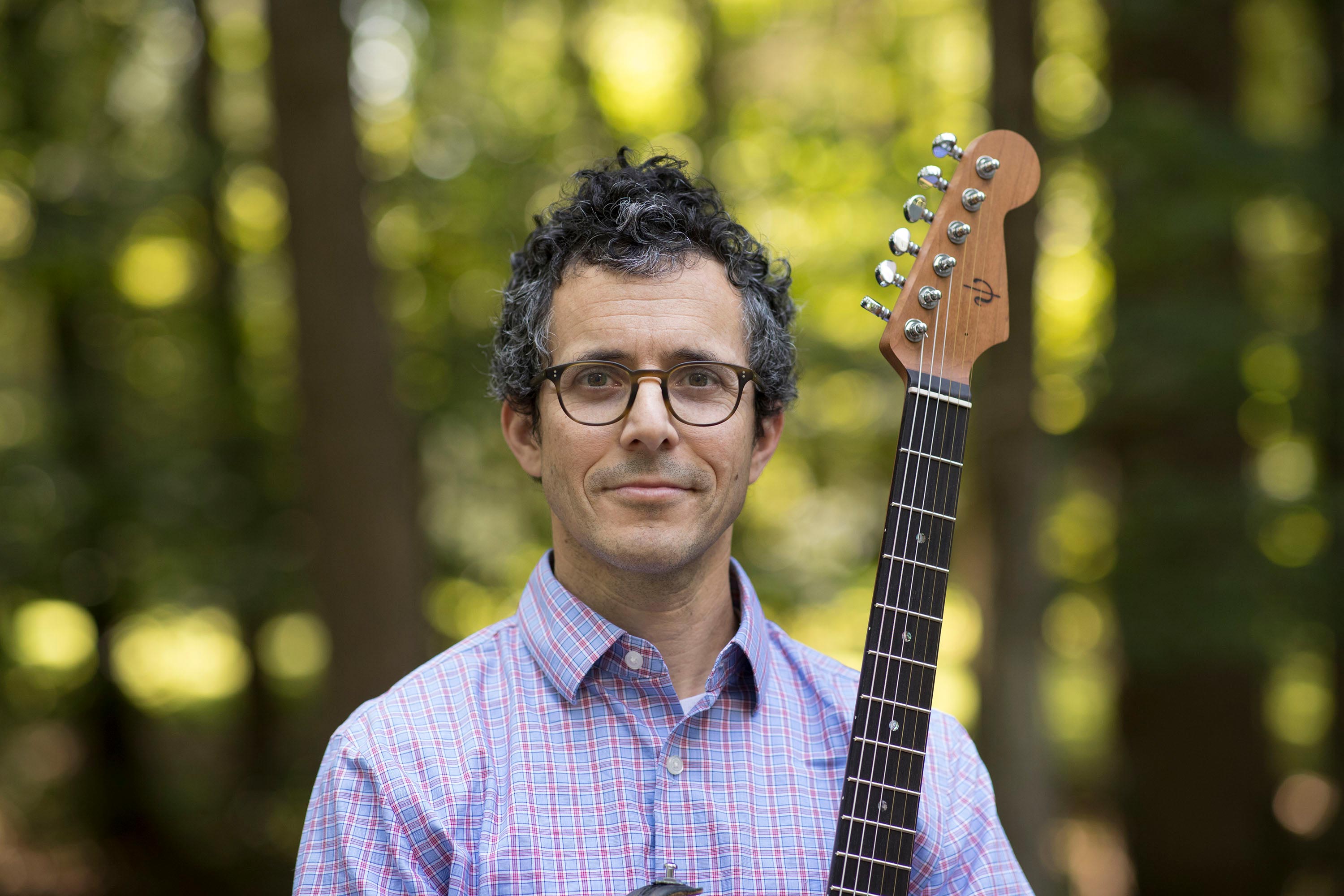
With a career so deeply rooted in an understanding of computer programming, it may come as a surprise to know that Efron graduated from Occidental College in Los Angeles with a degree in English. So how did he pivot from literature to computer science?
“It was when I came back after [graduate] school, I had this job at Stanford [University] where they needed someone who could read Latin and translate Latin and program,” he said. “I guess somewhere along the line I had learned just enough programming that I could squeak my way in the door, and then I started taking classes in computer science and just kind of boot-strapped my way up from there.”
Efron used his knowledge of natural language and his passion for the philosophy of language to improve the performance of search engines. He described his work as the “magic” between typing in a query and receiving a list of results.
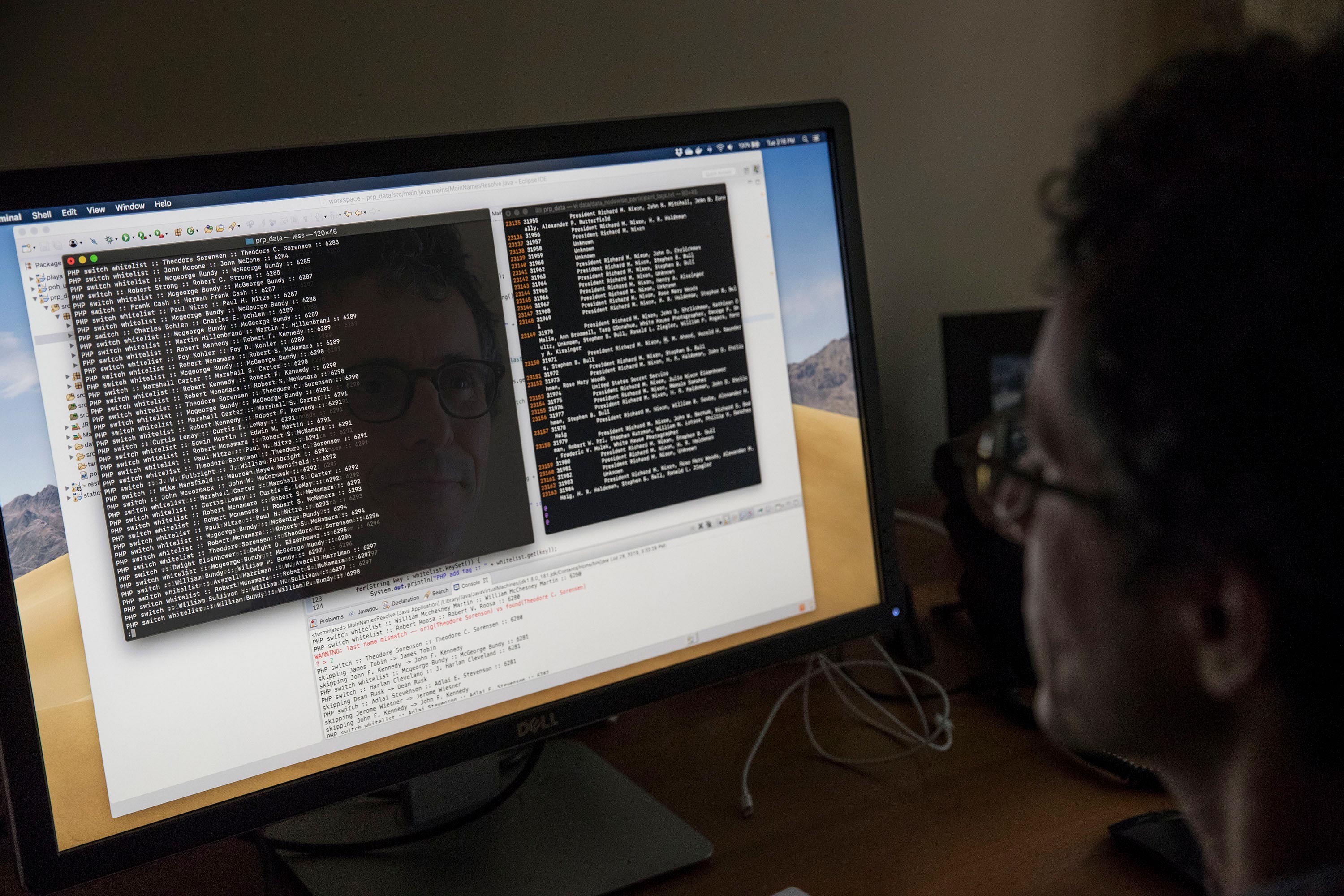
“It was still looking at how texts speak to what they mean and what it means for a document to be about something,” he said. “To me, the main switch was moving from a philosophical lens to a more mathematical one. It all fits together in my head somehow.”
On top of his skillsets in language and computers, Efron has fixed up guitars since he was a teenager.
“It started out when I was in high school. We just never had any money, so we always called it ‘Frankenstein-ing’ guitars up,” he said. “We would take pieces from one and another, and it always started with repair work and improving what instruments we could afford.”
Although he can’t remember when he made his first guitar from scratch, it’s been an enduring hobby ever since.
“It was not so different from the way I learned how to code,” he said. “I was just doing it and you sort of start with easy problems and slowly work your way up to more ambitious stuff.”

Efron describes his guitars as “workman-like,” valuing functionality above all else.
Most often he gets inspiration for his designs from the musical instrument company Fender, and always strives to make them sound the best they can, going so far as to design and build his own homemade pick-ups – the magnets that sense the vibrations in the strings.
“I think they’re not the most beautiful, luscious instruments in the world,” Efron said of Fender guitars, “but I think they’re the most playable ones. I tend to start with those kinds of pieces and then I start to decide what I want to change from there. It’s always with an eye toward solving a problem that I noticed with the last guitar that I built.”
Right now he works exclusively on electric guitars, but he dreams of one day having a workshop large enough to house the tools he would need to begin crafting acoustic instruments as well. The latest instrument he dreams of building is a violin.
“I’ve been working for about a year now on playing these Bach violin sonatas on the guitar, which is how I got interested in learning to play the violin,” Efron said.
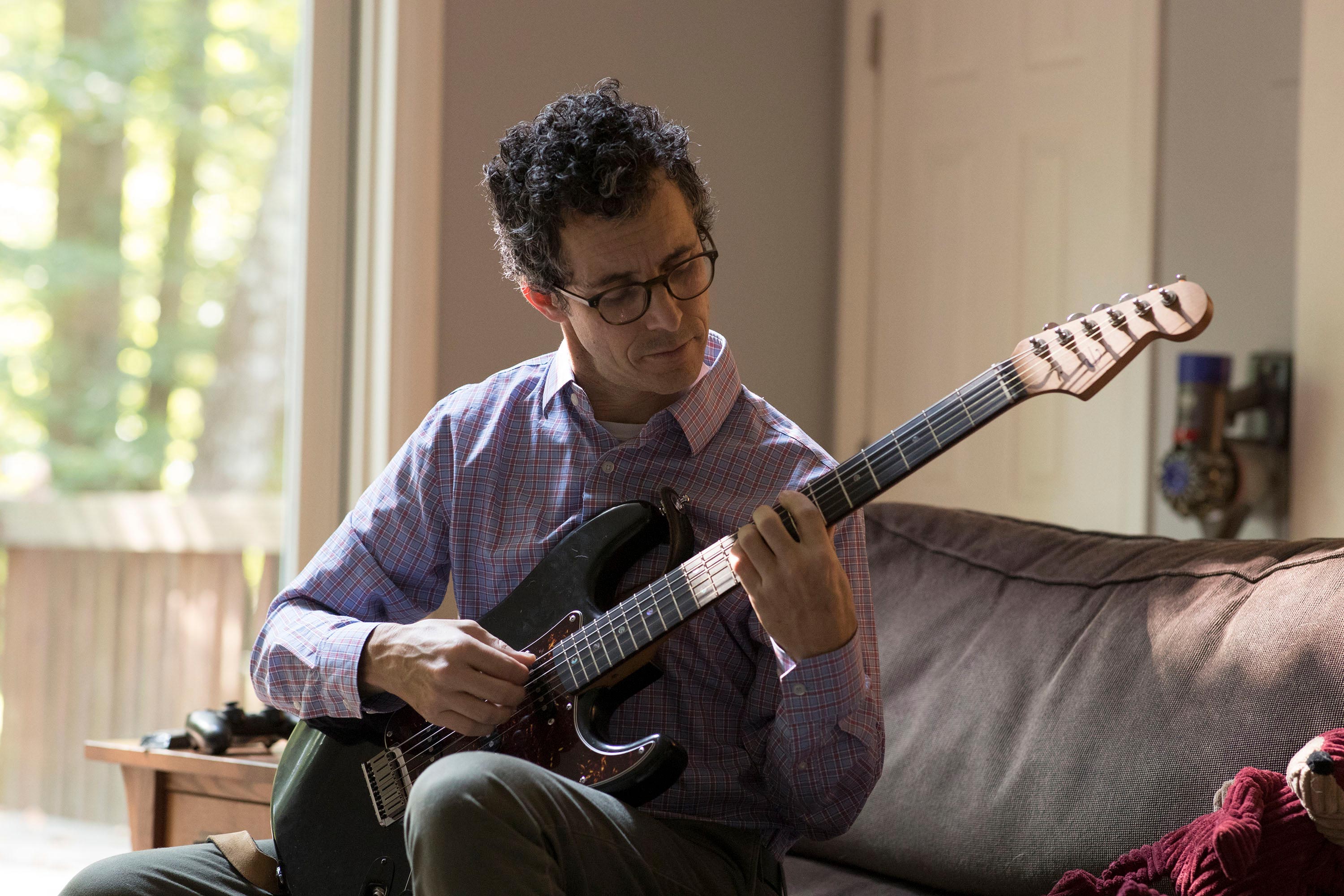
Efron’s ambition to always improve upon past products applies to both his music side and his computer science side.
“To me, both endeavors reward similar outlooks on solving problems,” he said. “In terms of actual problems you solve, they’re very different, but in terms of what kinds of skills work in either domain, I think they’re actually not that different.”
